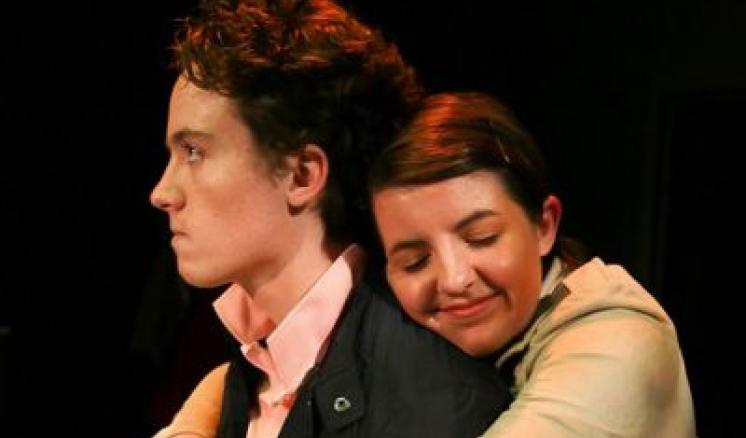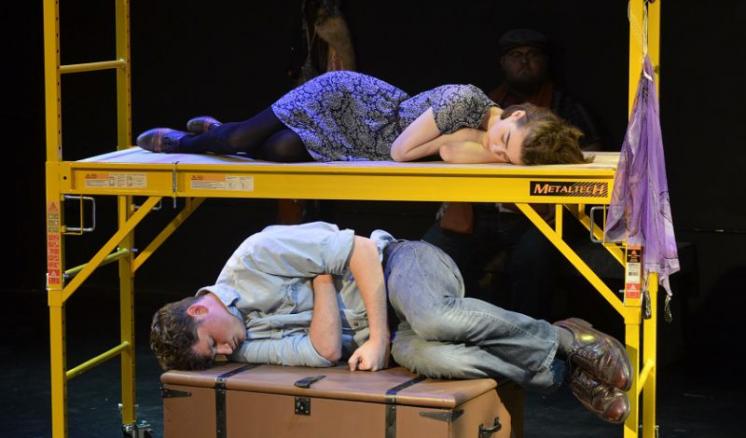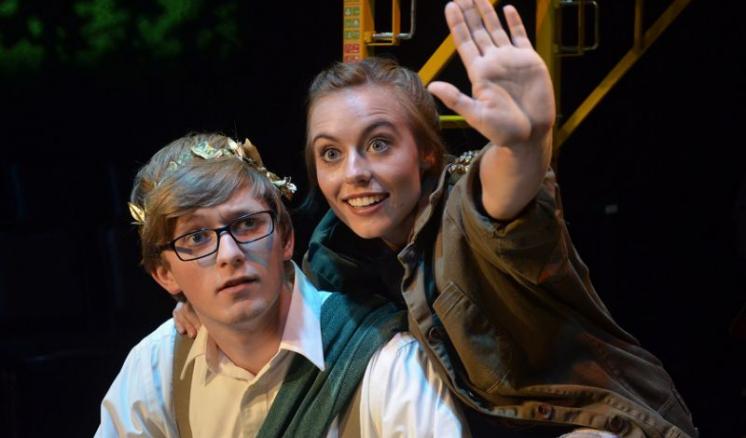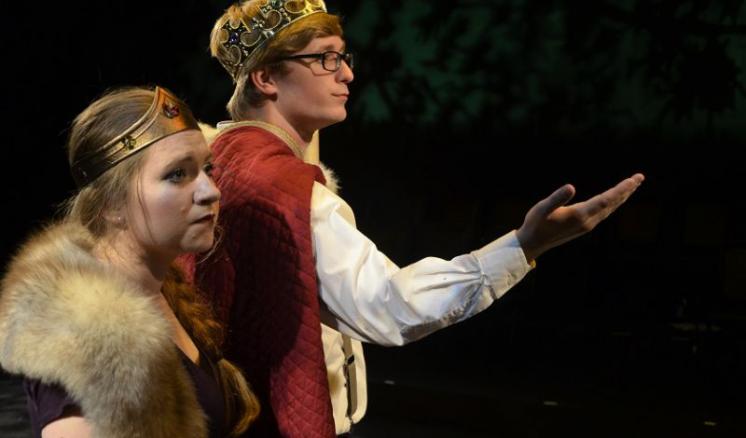









Four weeks, 22 characters, thousands of lines, 25 rehearsals, and over 1,300 hours were spent on behind-the-scenes elements for ETBU's most recent theatre production. The ETBU Theatre Department began working on Shakespeare's A Midsummer Night's Dream on August 29 and played five sold out shows from September 29 to October 2.
"Lots of people think that Shakespeare is really boring and tragic and everyone dies, but that is definitely not always the case," ETBU junior Kellie Papas said. "This play is very funny, especially the way we did it. We used a lot of physical comedy that was super fun to play around with. The cast was great, and I loved working with them."
One of the most unique aspects of Director and ETBU Associate Professor John Dement's adaption of the play is that eight actors play 22 characters. According to Dement, he wanted to make sure that the audience had fun watching Shakespeare which led to many of his directorial decisions.
"Our goal as a cast was to make Shakespeare accessible to the audience," sophomore Payton Weinzapfel said. "We wanted to act and execute it in a way that anyone could understand and enjoy. I think the audience participation was a unique way to do that."
ETBU senior and the show's Technical Director Colin Benfield said that the audience interaction was one of many ways that the director, cast, and crew made strides to do this. The play consisted of three storylines and audience interaction. Because of this complexity, Dement and Benfield chose to keep the set minimalistic. This helped with the movement of the show and kept the audience focused on the characters.
They also integrated modern music during pre-show, transitions, intermission, and post-show that went along with the themes in the production. The sound cues and interactions between the actors and crew throughout the show added another dimension of comedy to the overall production. They sound crew enhanced the comedic timing of the show by using other familiar sounds like Ariel's singing from Disney's The Little Mermaid and the common drum beat that follows a punchline. The timing between the technical crew and the characters on stage brought this show to life.
"I was running the soundboard, so I had to pay particular attention to my cues and hopefully press the correct one at the right time," ETBU freshman Amanda Puckett said. "Since the design elements were basically characters in this show, it was very obvious if I missed a cue. The details were very important."
Costume Designer, ETBU Alumna Samantha Pettigrew, added details to the show to help the audience understand what was going on as well. With the pace of the show, costume changes had to be quick. So, she utilized colors to help bring clarity to the storyline. The couples that were truly in love wore variations of the same color. Also, quick changes like tiaras, glasses, hats, masks, and jackets were used to create differentiations between characters.
"The costume changes helped with the character changes because they allow you to switch physically from one character to the next," Weinzapfel, who had three acting parts in the show, said. "Without these costume changes, you have to make a really quick mental shift to the next in a totally different character. The entire cast changed the way they entered, walked, stood and spoke to embody different characters. The small costume changes and the physical set changes with moving pieces helped not only us, but the audience, understand the switch between characters and storylines in this adaption."
Both the cast and crew contributed to all aspects of the show. This was a true ensemble that assisted with all components of the production to make it successful. All the students who worked on this weekend's A Midsummer Night's Dream finished with a better knowledge of theatre from installing lighting to publicity. ETBU's Theatre Department, led by Chair and Associate Professor Traci Ledford, focuses on giving students not only the skills they need to be successful and versatile in their field, but the department emphasizes theatre as their mission field.
"It is our desire to help our students develop the skills needed to succeed in the world of professional and academic theatre," Ledford said. "However, we want everyone to understand that the person making the prop is just as important as the person saying the lines on stage. We are artists and creators in the image of the Great Creator. So, even if you are 'just' cutting wood today, or 'just' painting-there is no 'just' to it. Everything is essential. So when you make that stitch, if you do it right, then do it for God."
The cast, crew, and director are willing to bring this show to new venues. If you are interested in more information about this opportunity, please contact Director John Dement or Theatre Department Chair, Traci Ledford, at 903.923.2292.









